James Basson was at Chelsea on his second Gold-winning garden for L’Occitane when he overheard someone comment that it looked like “just a goat path”. Luckily, he took this as a compliment, as did the next person, who said it looked just like the conditions at her house in southern France, and commissioned him on the spot. The result is a stunning garden in the Gordes region, an area known for minimal rainfall and long, hot summers.
IN BRIEF
- Name South Wood Farm.
- What An English flower garden designed by Arne Maynard.
- Where Devon.
- Size Five acres.
- Soil Clay with chert rock.
- Climate Warm and temperate, with high rainfall.
- Hardiness zone USDA 8.
Brought up in the South of France, James has the Mediterranean terroir in his blood. He uses the natural landscape as his muse and travels whenever possible to Greece and Turkey, to understand and emulate the natural growth patterns of the drought- and wind-tolerant layers that make up this raw, beautiful region. In tough conditions like this, James chooses his projects carefully. “Our clients are people who like gardens and plants, not just pretty pictures,” he says.
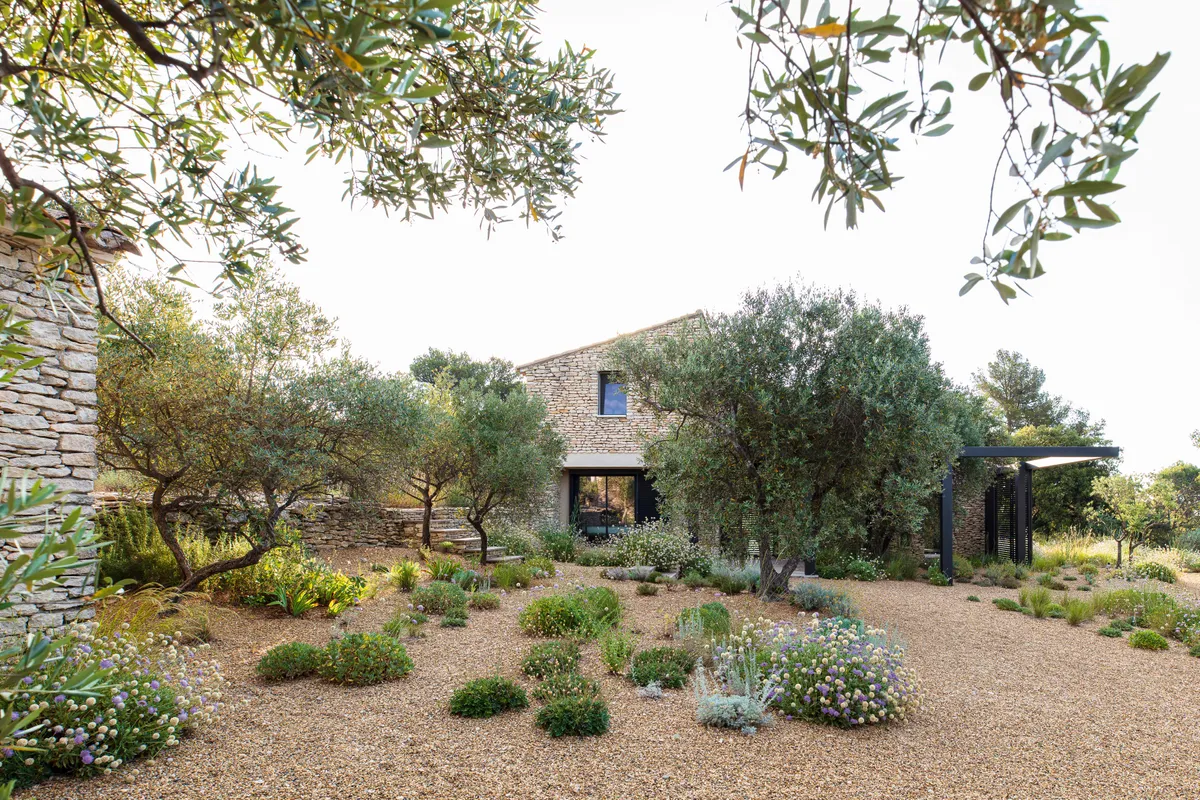
For this site, the owner gave the team at Scape Design a brief to encourage local wildlife and create a feel of simple ‘barefoot luxury’. It sits down a winding road, with fragile dry-stone walls, surrounded by stone outcrops and ancient bories – round sheep shelters made of field stone that are common to this part of France. At its centre is the house of local flaked limestone, surrounded by a distinctive pergola. The garden in which it now sits is stunning; a lesson in working with, rather than against, nature.
In brief
What Provençal garden, designed to encourage wildlife. Where South of France. Size Just over two acres. Soil Very poor, stony, shale-like alkaline substrate with a thin humus layer that
has built up over time. Climate Continental. Extremely
dry, south-facing slope about 600m above sea level. Hardiness zone USDA 9.
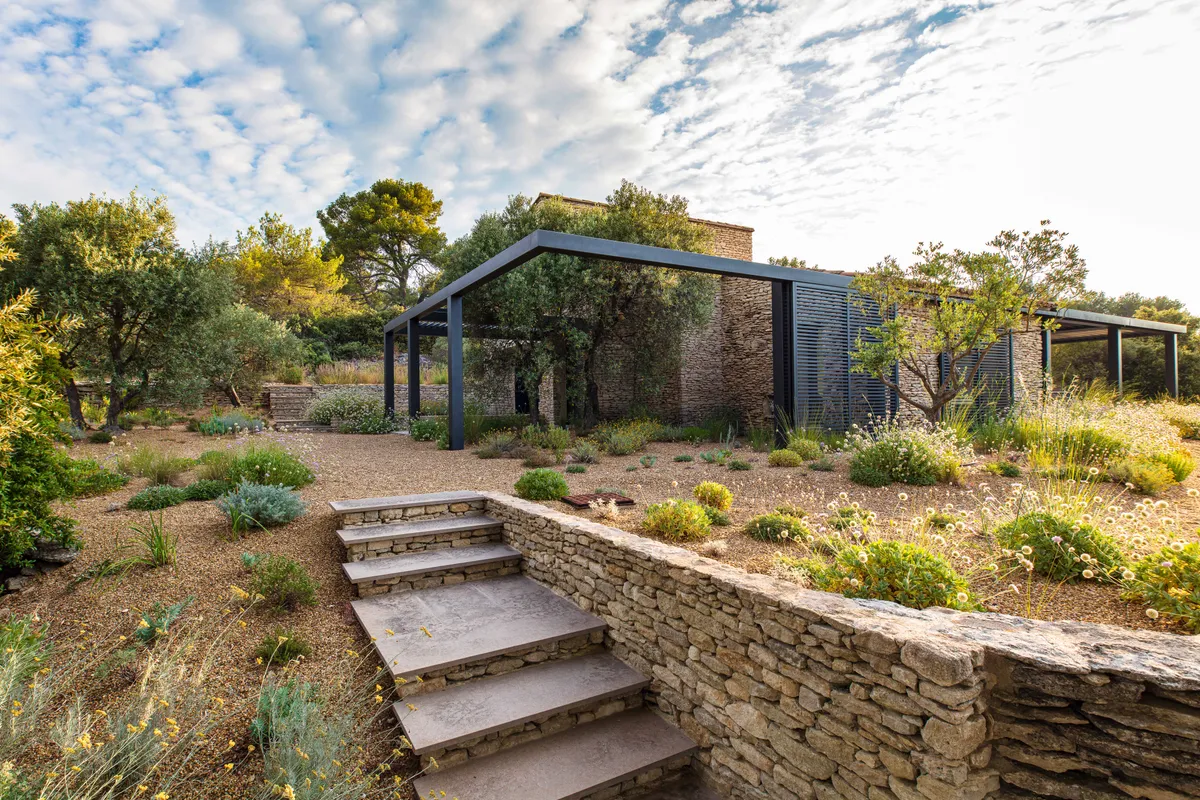
The imposing black metal structure with sliding shutters, which surrounds this Provençal house, extends around existing olive trees, allowing designer James Basson to link house and landscape by bringing his mix of drought-tolerant planting in gravel right up to the door.
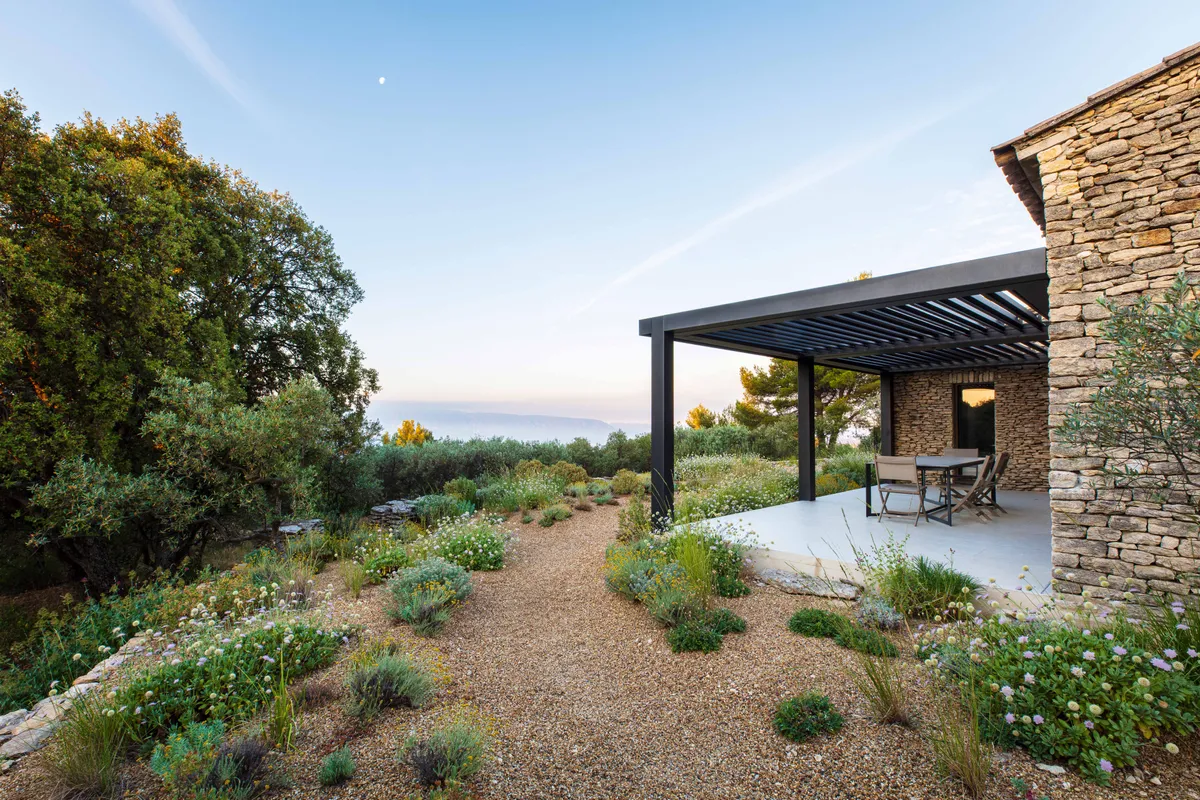
Stunning views out across the olive groves towards Roussillon are framed by the main dining pergola with planting that includes Lomelosia minoana and Brachypodium phoenicoides.
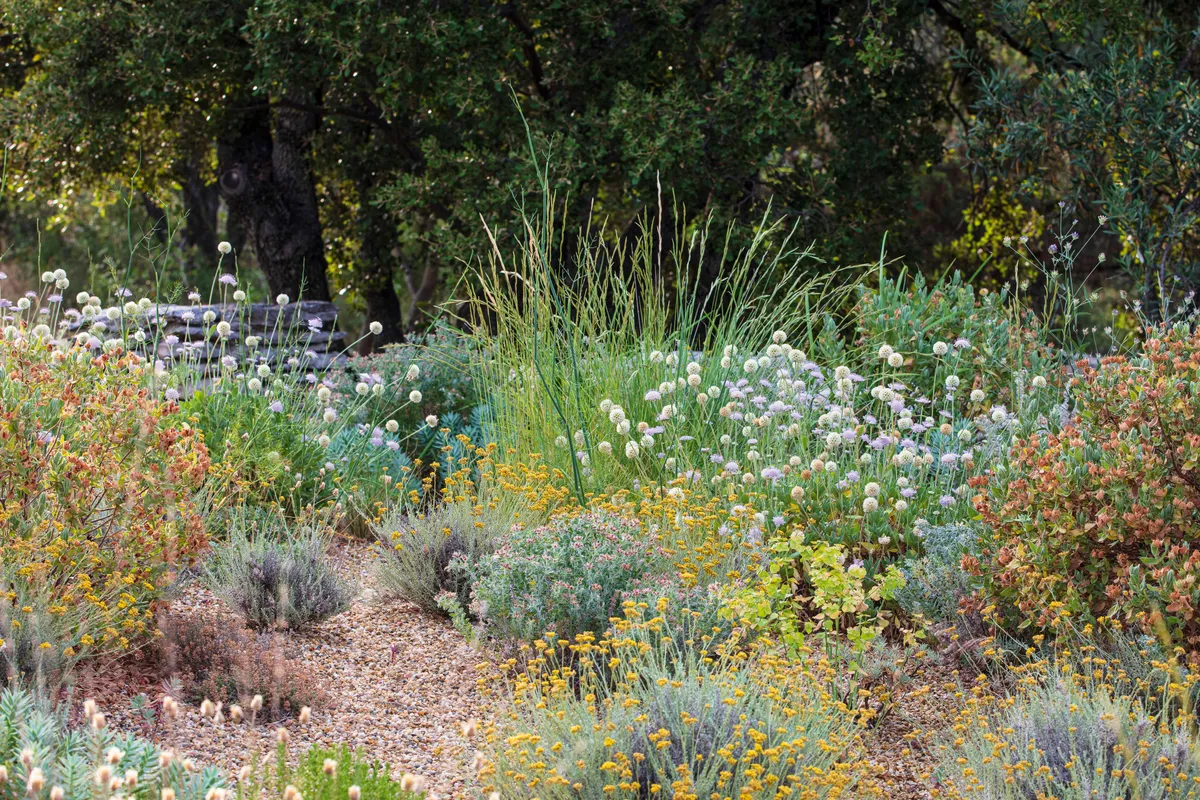
In a sunny spot leading to the woodland of evergreen holm oaks and pines, James has included a mix of colourful and fragrant plants, such as the grass Brachypodium phoenicoides, Cistus albidus, Lomelosia minoana and Helichrysum italicum.

The old driveway was moved to allow for a gracious terrace leading to the front door, which is framed by an ancient olive grove. A wide space left between pompoms of Lomelosia minoana, Iris unguicularis and the silver foliage of Artemisia caerulescens allows for occasional heavy deliveries.
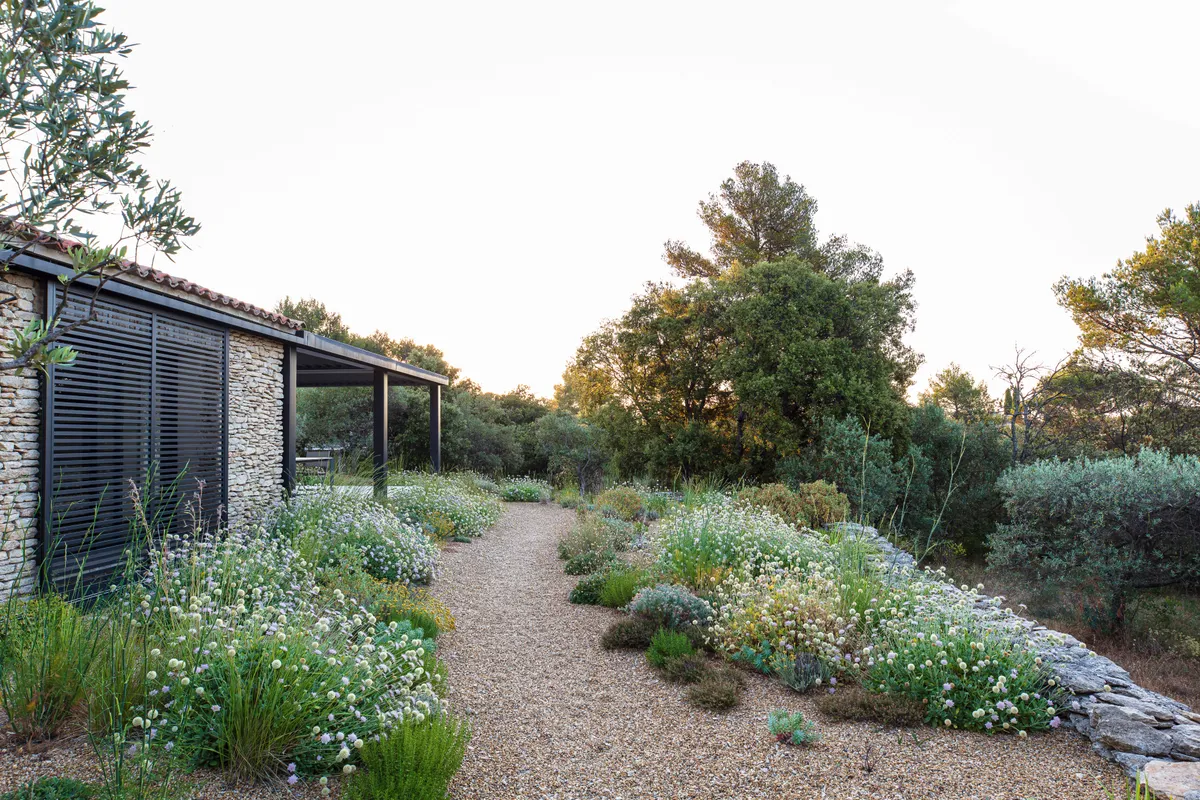
The gravel path is flanked by the grass Hyparrhenia hirta and the shrubby scabious Lomelosia minoana, with taller spikes of Foeniculum vulgare, which James adds at a low percentage and allows to self-seed.
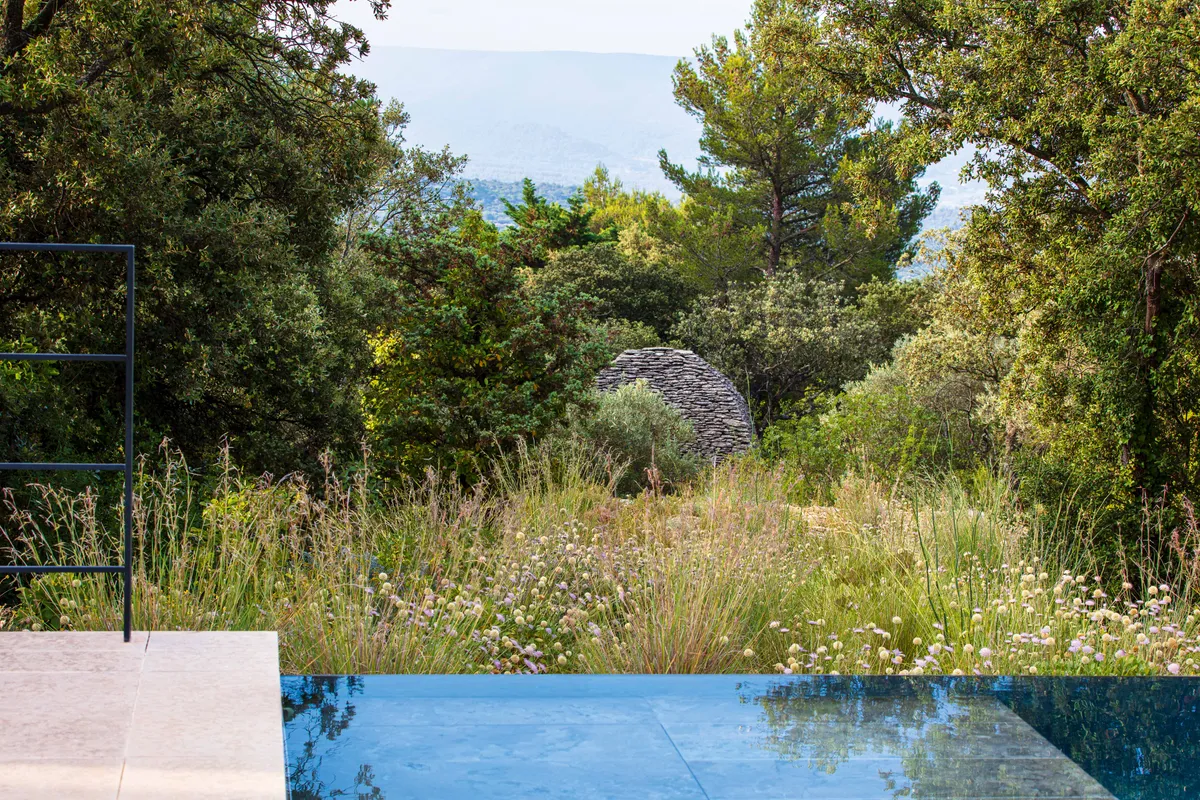
One of two ancient bories that James wanted to keep for their historic value. These stone structures, where a shepherd could weather a storm or a cold night, are common to this area. In this garden, where the owner wanted to encourage wildlife, they now house an impressive colony of bats.
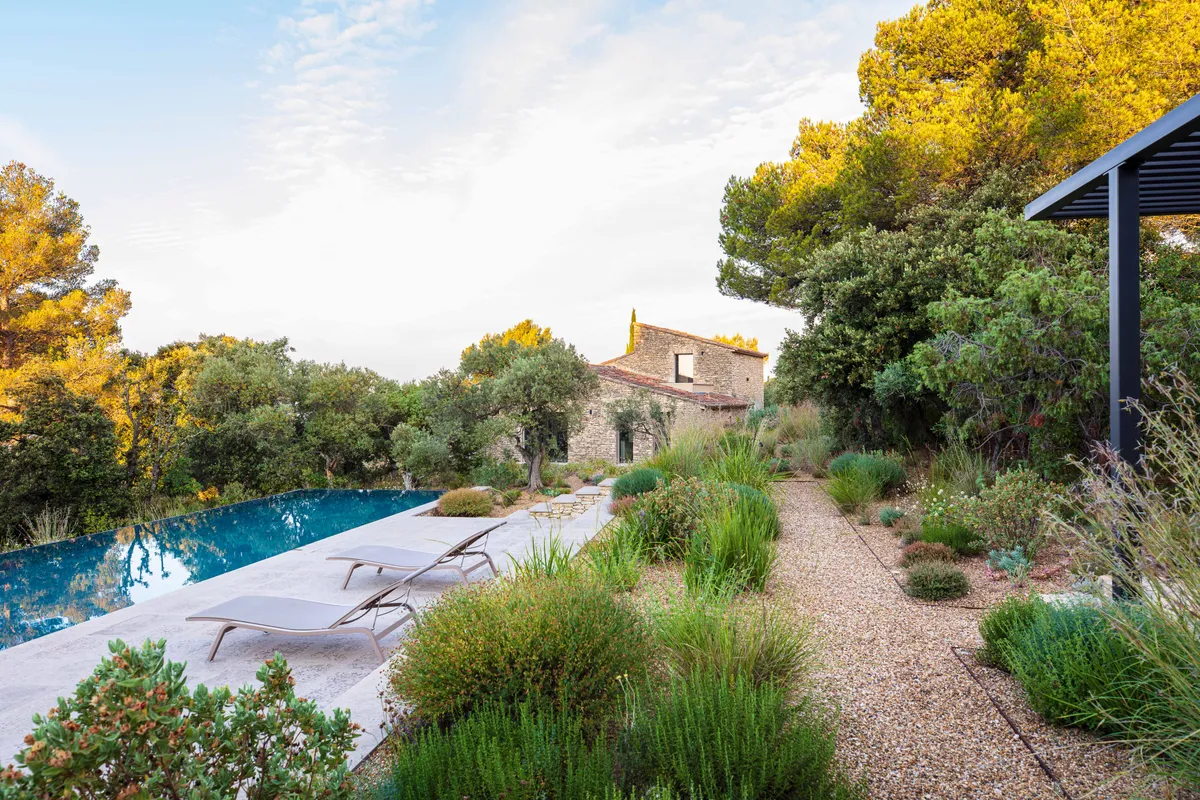
James wanted to bring the pool out into the landscape as much as possible, so this terrace was designed to allow maximum planting in and around the pool area. Cistus albidus, Salvia rosmarinus and Lotus hirsutus feature, along
with a yellow haze of the grass Hyparrhenia hirta.
Key plants
Centurea bella
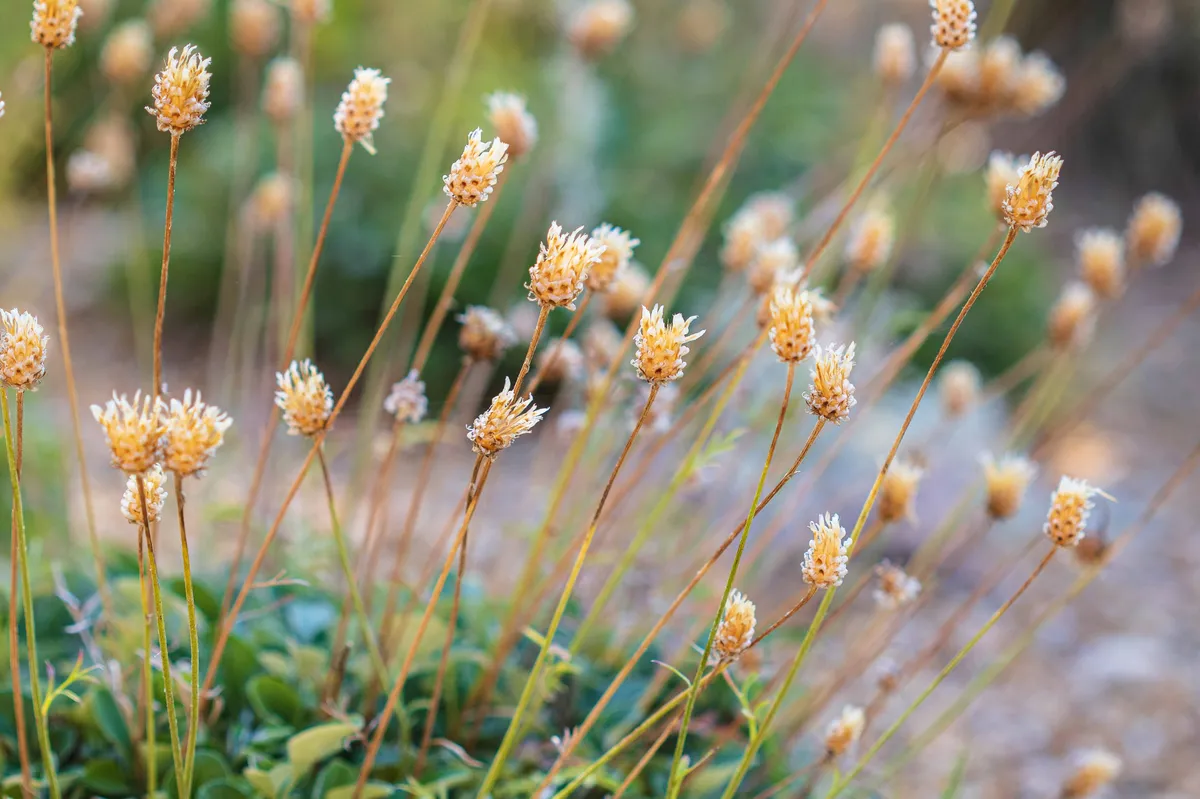
This slow-growing groundcover creates reliable dense cushions low to the ground. It’s long lived and these seedheads continue to add interest once the wonderful pinkish flowers have finished. 25cm x 45cm.
Satureja thymbra
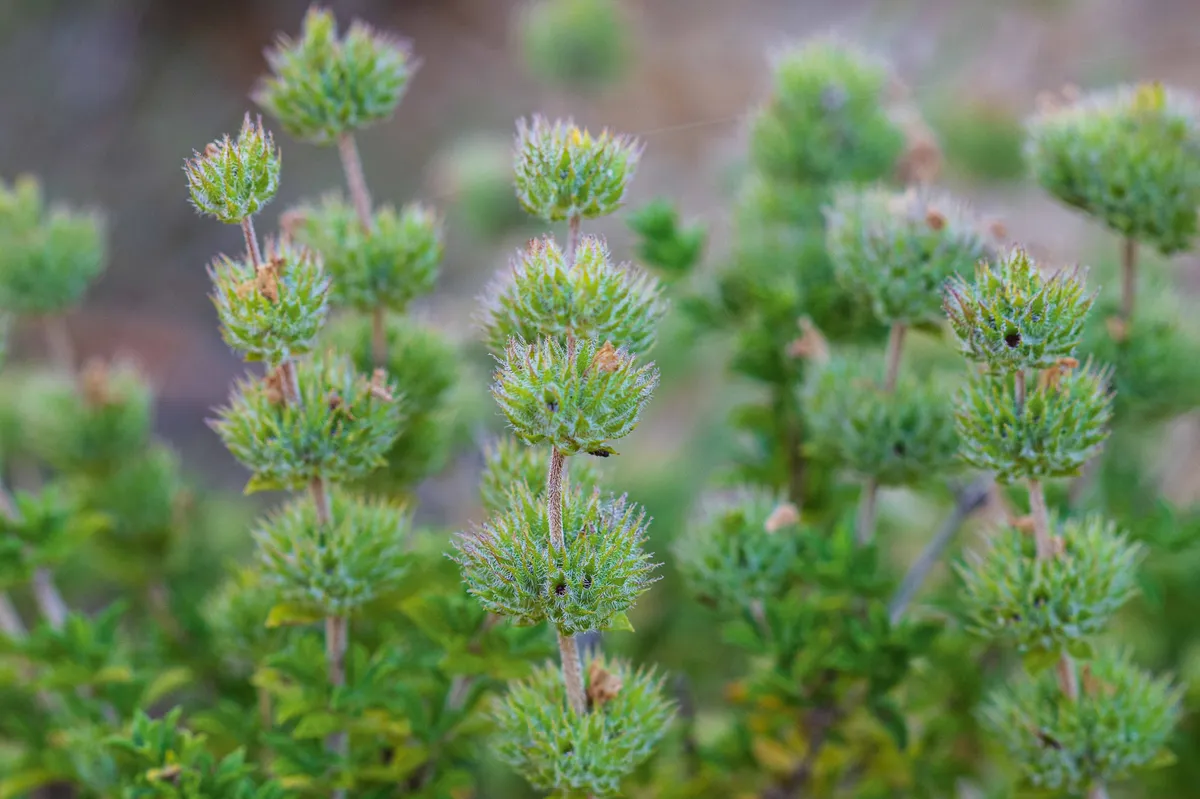
Late-flowering sub-shrub with fragrant foliage. Pinkish-purple flowers are followed by strong seedheads throughout the summer. 40cm x 40cm. USDA 6a-9b.
Artemisia caerulescens
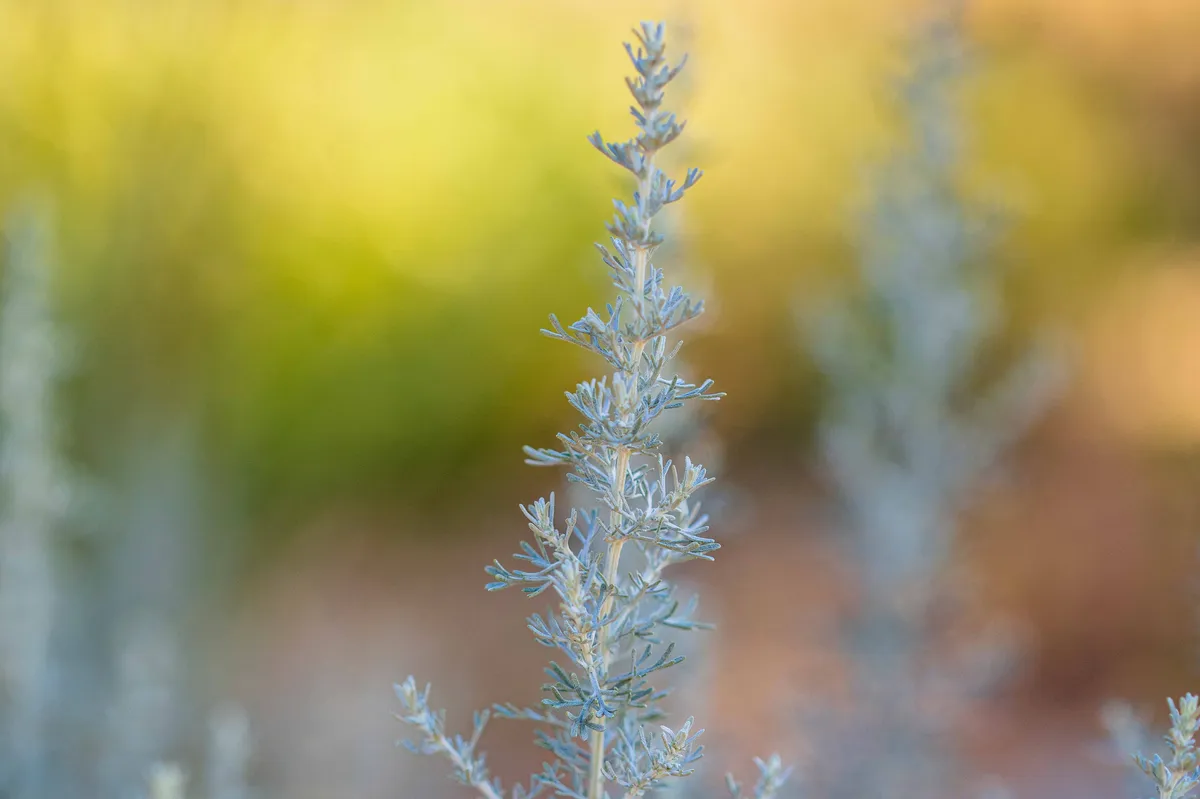
Small and reliable with good silver colour. It has proved to be a real winner in James’s lower plantings. 1m x 30cm.
Helichrysum italicum
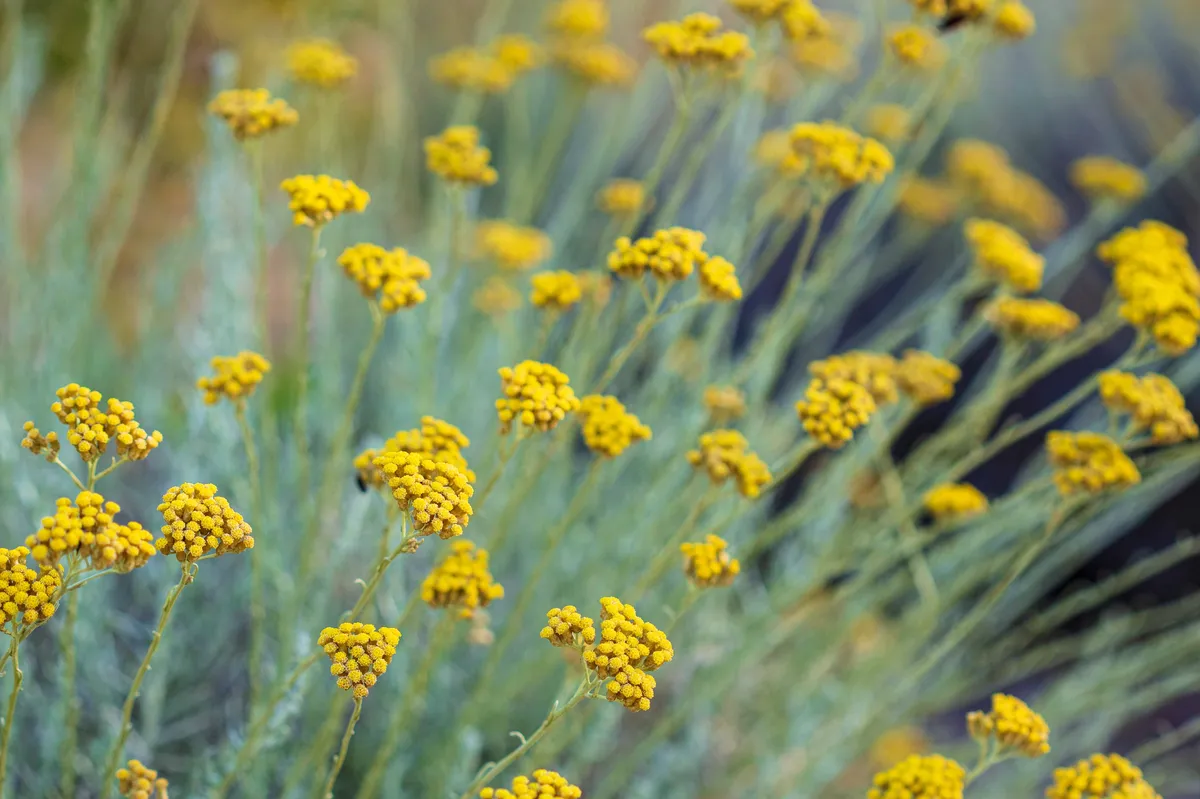
Throughout summer this breathes a musky scent into the air that evokes the dry air of the Mediterranean. Stays small and tidy in really poor soil. 50cm x 50cm. RHS H4.
Salvia multicaulis
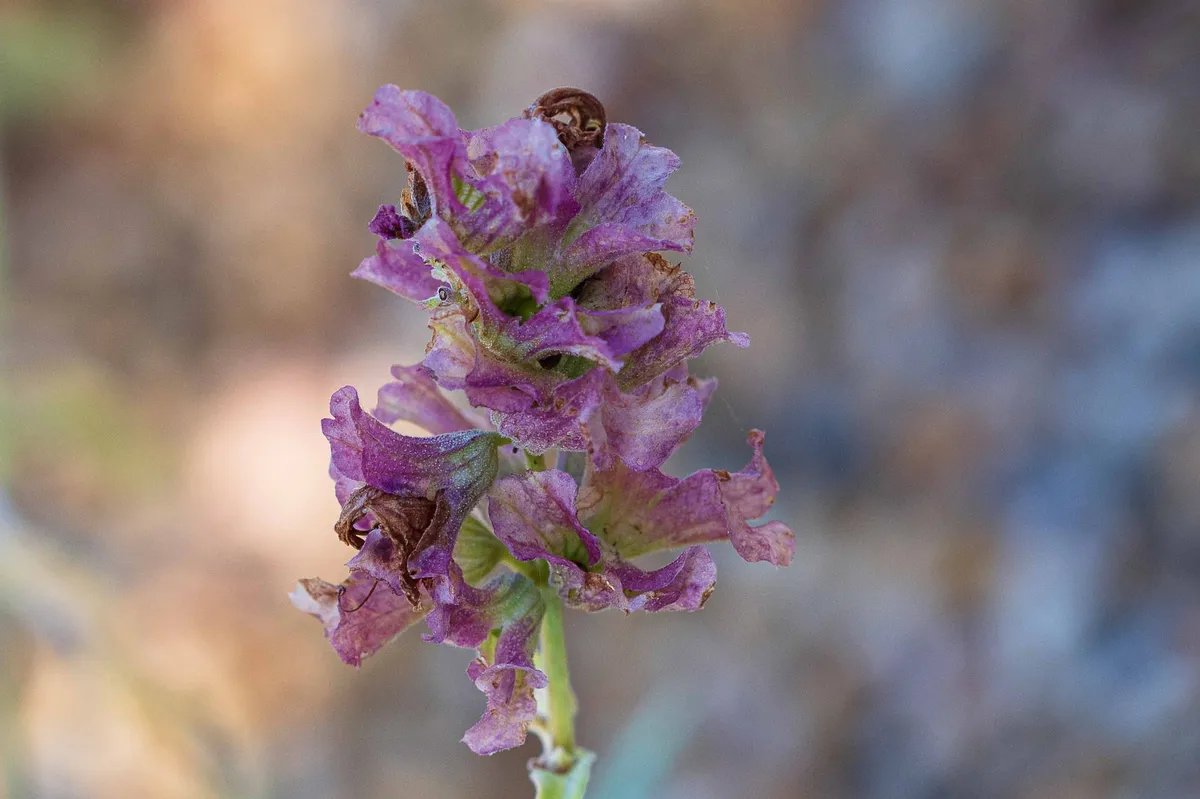
A favourite of James’s for creating a low groundcover. Its red calyces shine on well into late spring and early summer. 30cm x 90cm.
Ptilostemon chamaepeuce
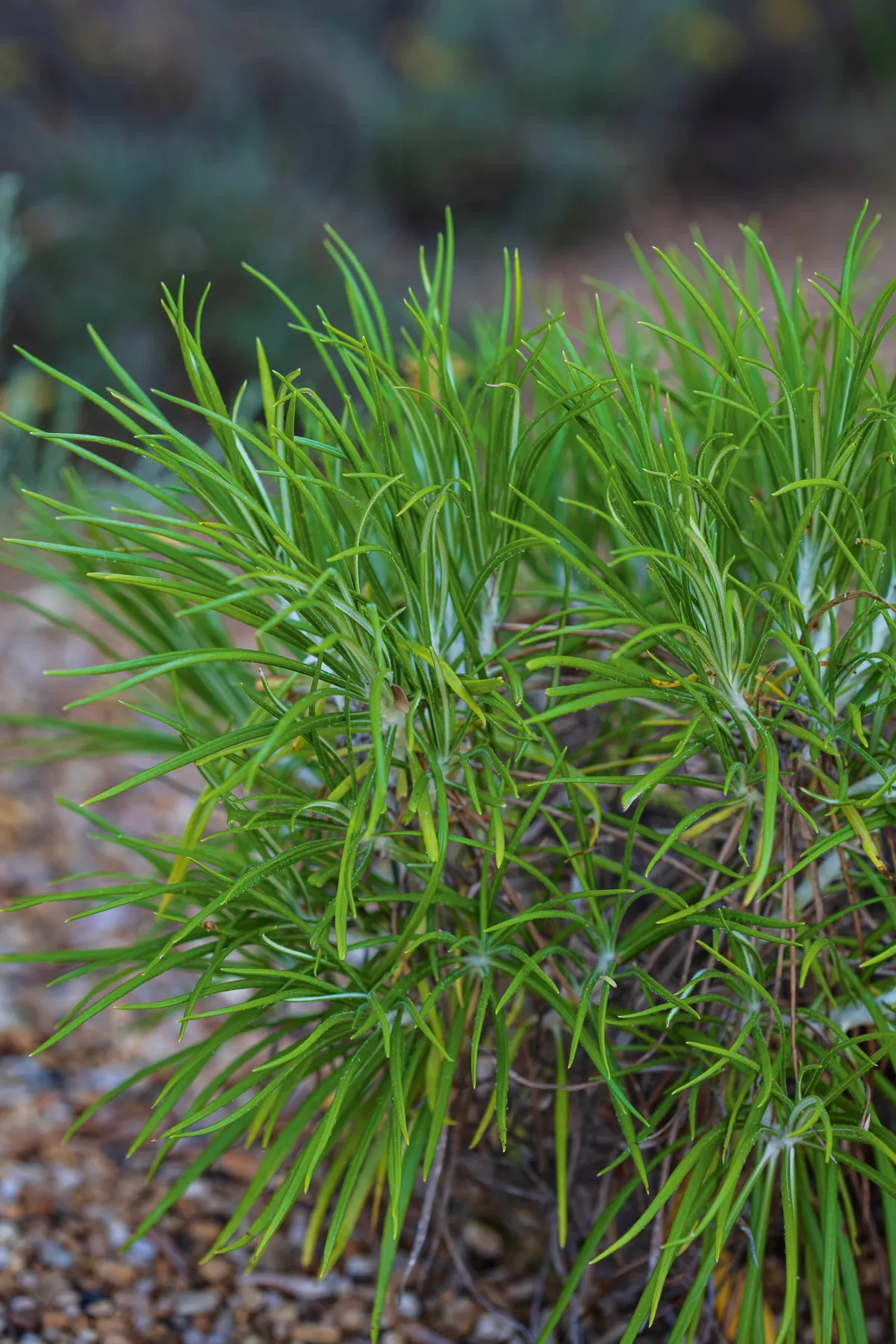
An extraordinary plant that is bringing a new structure and texture to James’s low-growing plantings. A lover of shade and sun, it manages to traverse the garden, popping up here and there. 60cm x 90cm. RHS H3, USDA 9a-11b.
Find out more about James’s work at scapedesign.com







